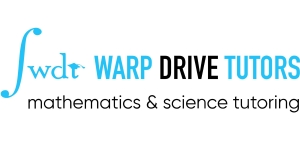GCSE and IGCSE Mathematics Higher and Foundation tiers (all exam boards)
Some Basics:
Since this qualification changed to the more rigorous 9-1 grades, many of the differences in content disappeared, so the two qualifications are now very similar. The GCSE is examined with three 90 minute papers, one of which is non-calculator, and the iGCSE is examined with two 120 minute calculator papers. A grade 4 or 5 in this qualification (or equivalent) is usually required for acceptance at UK universities. You will either be entered for the Foundation tier papers, where you can be awarded grades 1-5, or a Higher tier paper, where you can be awarded grades 4-9. Your school will decide which tier of entry is likely to give you the best outcome.
Foundation topics usually covered include:
- Numbers and the number system: negatives, fractions, decimals, powers and roots including negative indices, set language, percentages, ratio and proportion, degree of accuracy, standard form
- Equations, formulae and identities: index laws, manipulate expressions, substitution, expanding and factorising linear and quadratic expressions, solving linear, quadratic, and simultaneous equations, inequalities
- Sequences, functions and graphs: nth term, draw linear and quadratic graphs, midpoints, length of line segment, gradient, y=mx+c
- Geometry and trigonometry: angles in parallel lines, interior and exterior angles, properties of quadrilaterals, compound measures, constructions, circle tangents and chords, right angled trigonometry and Pythagoras, area, volume, converting square and cubic units, similar shapes
- Vectors and transformation geometry: rotations, enlargements, translations, reflections
- Statistics and probability: graphs, averages from lists and tables, relative frequency, sample spaces
Higher topics usually covered include:
- Everything in Foundation tier
- Numbers and the number system: recurring decimals, manipulating surds, fractional indices, compound interest, product rule for counting (GCSE only)
- Equations, formulae and identities: expanding three brackets, algebraic fractions, completing the square, direct and inverse proportion, complex quadratic equations and inequalities
- Sequences, functions and graphs: sequence notation, sketch polynomials, reciprocals, exponential and trig graphs, functions, graph transformations, complex co-ordinate geometry, differentiation (IGCSE only)
- Geometry and trigonometry: circle theorems, obtuse angles, sine and cosine rules, 3-d problems, sectors, pyramids and cones, frustums (GCSE only), length and volume scale factors
- Vectors and transformation geometry: magnitude, column vectors, modulus, vector proofs
- Statistics and probability: histograms, cumulative frequency curves, IQR, tree diagrams, conditional probability
Typical problem areas include:
- Finding the equation of a line through a point that is not the y-intercept
- Finding the lower bound when division or subtraction is required
- Circle theorems where additional lines are needed
- Vector problems not broken into steps
- Completing the square with a co-efficient to the quadratic term
How a tutor can help:
Working one-to-one is the most efficient way to learn and your tutor will immediately see any gaps in your knowledge and work with you to address them. The experience our tutors have gained in the classroom has equipped them with an extensive knowledge of the style of questioning you will find on the paper and which questions students will find most challenging.
GCSEs are usually the first time students are given study leave in advance of their exams. Knowing how to structure your day, and what revision strategies are the most effective requires practice just like other skills. A tutor can support your independent revision, and guide you through the revision cycle, strengthening your revision skills for any exams you may sit in the future.
Find a tutor to help
Warp Drive Tutors, Inc. has been developed independently from and is not endorsed by Cambridge Assessment International Education. A-Level, GCSE and iGCSE are registered trademarks owned by Cambridge Assessment International Education
